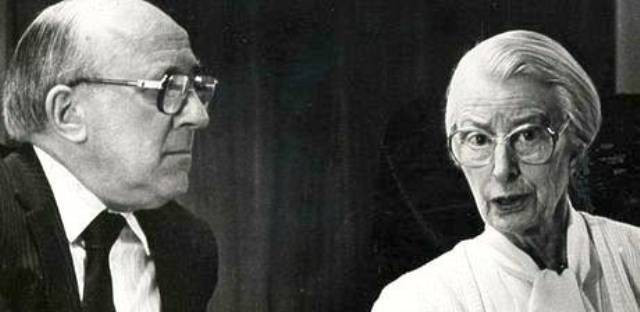International Day of Charity 2022
Posted on: 5 September 2022 by John Picton in Blog

To mark International Day of Charity, Dr. John Picton reviews Margaret Simey’s classic text, 'Charitable Effort in Liverpool in the Nineteenth Century' (Liverpool, University Press, 1951).
Margaret Simey
Margaret Simey was one of the first batch of graduates in Social Science at the University of Liverpool, a course that she described as being for, ‘middle class ladies and vicars… who did voluntary work.’
Devoting herself to community action, she became councillor for Granby ward in her later life. On the Labour Group of the Police Committee, she famously clashed with Kenneth Oxford, of Merseyside Police, for his handling of the 1981 riots.
After saying that, “The conditions are not tolerable… and I would regard the people as apathetic if they didn't riot,” Simey became the subject of sustained attack in the national press, and also from Margaret Thatcher in the House of Commons.
Building Jerusalem
Written thirty years before the riots, in Charitable Effort in Liverpool in the Nineteenth Century, Simey details the philanthropic response of Liverpool’s merchant class to a different set of social issues ¬– hunger and cholera in the new industrial city.
In common with the masses in the slums, the wealthy were also new arrivals. They met in dissenting congregations, such as the Unitarian chapels on Renshaw street, and Paradise Street.
The chapels were communities, places for commercial deal-making, and for matchmaking amongst the merchant families. They were also centres of charitable effort, mixing philanthropy with a Christian mission to the squalid streets.
For Simey, Liverpool’s poverty was a source of dark fascination. Elsewhere, she describes seeing the city for the first time, at the age of seventeen, from a train window, after crossing the Runcorn railway bridge. She says, ‘the gates of Hell opened… furnaces, pinpoints of fierce flame...’
In Charitable Effort, religious charity is the source of the city’s salvation. The book is, at least, religiously infused. Drawing on chapel records, she describes how the Renshaw Street Unitarians brought in a missioner – the Revd. John Johns – from Devon. The congregation had hoped that his preaching, by itself, would reform the city’s poor.
Arriving in Liverpool, Johns intended to do more than preach. He was a proactive social reformer, keen to improve living conditions. But he died from cholera after visiting the sick.
Following the death of their missioner, the Renshaw Street chapel shifted from religious instruction to a new focus on improved sanitation and living conditions in the community. Latrine by latrine, they were now attempting build Jerusalem on the Mersey.
Women and Charity
Graduating in the 1930s, Simey said that she was the first generation ‘out’, after female emancipation. In Charitable Effort, she focuses on the women before her. She describes upper class congregants, known as Lady Visitors, who attended to the inmates of the workhouse on Brownlow Hill, and the sick and dying in the court houses.
She says that in this type of community interaction, ‘true charity lived on in the warm and human relations which developed between innumerable representatives of the middle classes and the poor whom they sought to comfort and befriend…’
While welcoming rising living standards, Simey thought that the emergent welfare state risked deadening the drive to help and volunteer in the community, so causing, ‘moral degeneration’. In this way, her politics were conservative.
Politics in the Spotlight
By the time she found herself in the spotlight, her political perspective might have evolved, or changed. But there is still a connecting line to be drawn between the worldview in Charitable Effort, and her conflict with Kenneth Oxford.
It is clear from any reading of the book, that his hard policing will have been anathema to Simey. She would have known in her gut that his methods would cause harm. This is because, for Simey, only the cultivation of community might build a better city on the Mersey.
Keywords: Margaret Simey, Charity, Kenneth Oxford, Liverpool, Women , Politics.